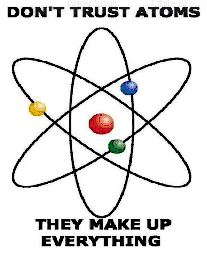>>
âHearsay Can Be Better Evidence than Directâ
>>
Oh really now?
Then why is it that courts do not normally allow
hearsay evidence to be used?
Zim.
>>>
http://www.legalzoom.com/articles/objection-hearsay-what-is-the-hearsay-rule-and-what-are-the-exceptions-to-it
Objection: Hearsay! What is the hearsay rule, and what are the exceptions to it?
by Mariah Wodjacz
We're all familiar with the scene. The fictional attorney on the courtroom drama objects on the grounds of hearsay; the opposing counsel shoots back by claiming excited utterance, and the judge gives a scripted response, deciding whether the testimony is admissible or not. During prime-time, this scene serves merely to thicken a plot, but if you are representing yourself in a real courtroom, understanding when to object on the grounds of hearsay and how to argue the various exceptions to the rule can make the difference between winning and losing.
Hearsay defined
Although the term itself may seem self-explanatory, there is more to the hearsay rule than is covered on Perry Mason. Broadly defined, "hearsay" is testimony or documents quoting people who are not present in court, and hearsay evidence is inadmissible for lack of a firsthand witness. When the person being quoted is not present, establishing credibility becomes impossible, as does cross-examination.
So, simply put, the hearsay rule says that secondhand testimony is not admissible in court.
Unless...
>>>
(Article goes on to describe some of the places under
which hearsay might be admissible. But I did not see
where 'so-and-so told so-and-so that somebody told
them that so-and-so said something' might be admissible.
Zim.

Mad Poet Strikes Again.
